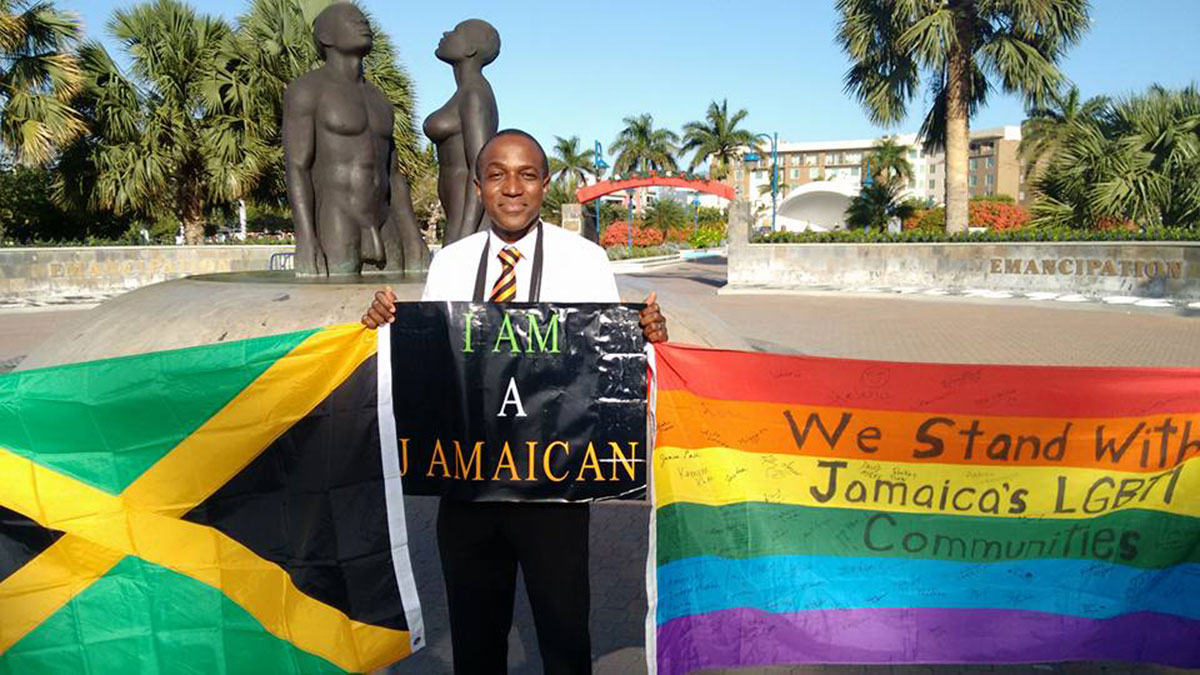Pride keynote sheds light on LGBT hate in Jamaica
 Supplied
SuppliedIt took death threats to “kick” Maurice Tomlinson out of the closet. But once he was out, the human rights lawyer became a public challenger of anti-gay law.
Tomlinson didn’t start out in LGBT activism. He was a lawyer for organizations involved in LGBT and HIV-AIDS activism, where he received human rights training for victimized LGBT individuals.
“That really opened my eyes to the real suffering,” Tomlinson said. “Because after I took those courses, I started hearing from people what attacks they’re had.”
Tomlinson began writing about cases of LGBT attacks in newspapers, which he said was all-consuming. He received death threats when his work was published, but Tomlinson knew he found his passion. He left corporate law and delved into human rights, and went on to organize Montego Bay’s first Pride celebration in 2009.
“People presume that when you say ‘Pride,’ you mean a march,” Tomlinson said. “We don’t do that.”
Safety cannot be guaranteed in a Pride march at Montego Bay — the local police force would only send one cyclist officer when Tomlinson tried to organize the inaugural march in 2009. Pride in Montego Bay is instead celebrated in a secure location behind multiple layers of security officers and precautions. Outside of the secure location are “flash stands,” where celebrators gather in high-traffic areas with few pedestrians and display placards and rainbow flags in-hand.
Participants in Montego Bay’s flash stands are bussed around the city to around five different locations. for one day — any more, and Tomlinson said Pride participants wouldn’t be promised safety and security.
One of the problems with LGBT activism in the Caribbean is the disunity that can happen between interest groups. During Pride, everybody comes together in unity, which is great, Tomlinson said. There was the fear that the class divide would segregate the LGBT community.
“The ‘rich queens,’ privileged gays, do not associate with the ‘scary queens,’ the poor gays,” Tomlinson said. “They are fearful they will try to exploit them.”
On every other day that’s not Pride, Tomlinson works in a few different areas of LGBT activism. Activism is needed in the Caribbean countries such as Guyana and Jamaica, where same-sex relationships are illegal and highly stigmatized. The prohibition is associated with a high rate of HIV in the region — in Jamaica, for example, one-third of men having sex with men test HIV-positive. Tomlinson works to challenge anti-gay laws and increase LGBT visibility, which is “much needed,” as he had experienced the need for change first-hand.
“When I had reported the death threats that I received because of my LGBT activism, the police chased me out of the police station saying that they hate gays and they make them sick,” Tomlinson said. “When I reported him to his boss, the officer said, ‘Those attitudes are unfortunate but they won’t change until the law changes.’”
Tomlinson is currently challenging Jamaica’s anti-sodomy law in court, but he has received little support from groups in the Jamaican community. For now, he’s backed by the public defender, a small lesbian group, and the media — newspapers are writing editorials in Tomlinson’s support. The major LGBT groups need to support each other more in asking for change, Tomlinson said.
“The biggest challenge to success in the Caribbean will be visibility,” Tomlinson said. “Unless people know who we are, they will always default to the stereotypes they hear.”
Tomlinson will be speaking about his work from 5 p.m. to 7 p.m. on Thursday, March 10 in Room 197 of the Law Centre. Food will be provided, as well as a screening of The Abominable Crime, a documentary film on homophobia and anti-gay violence in Jamaica




